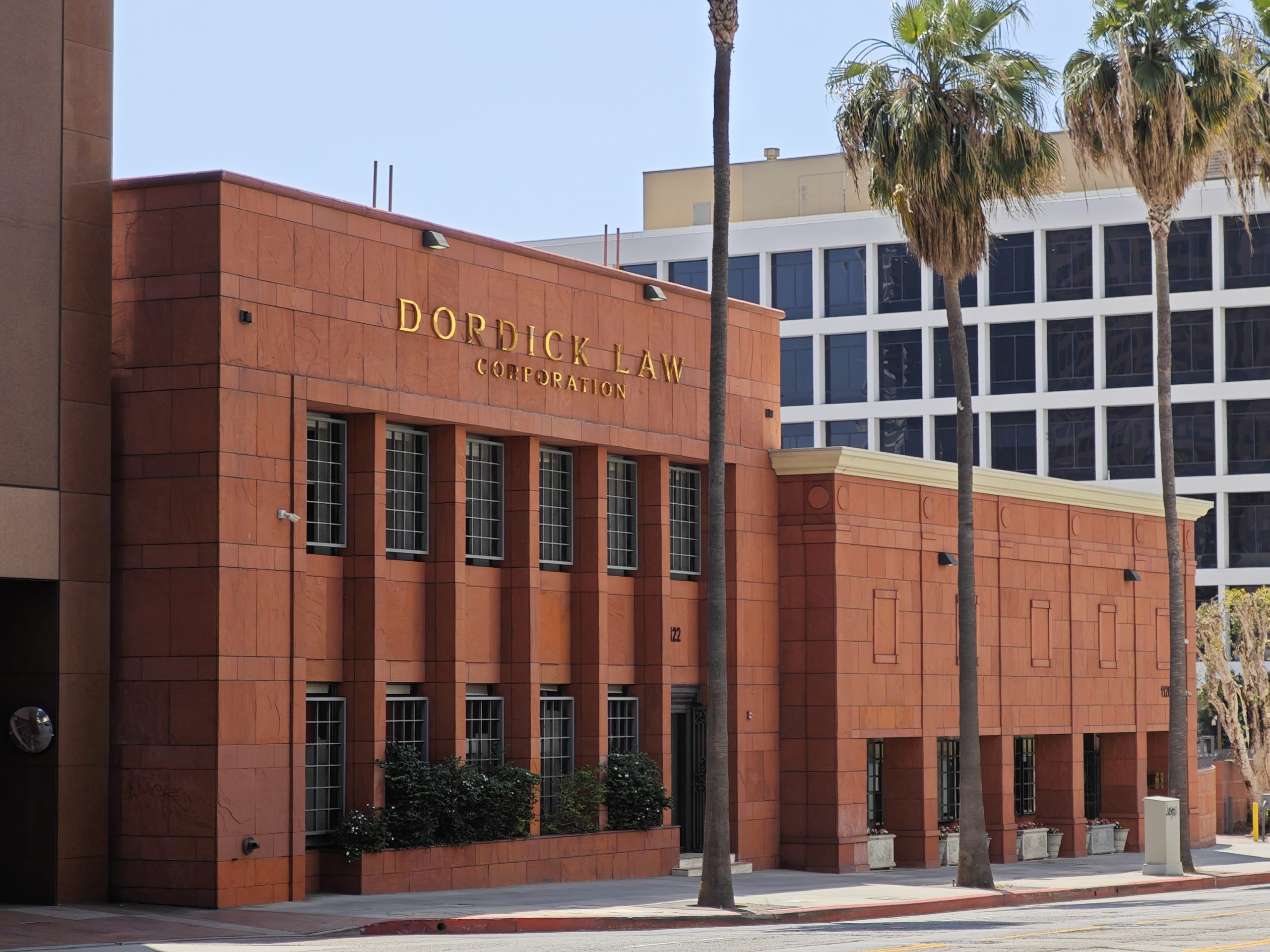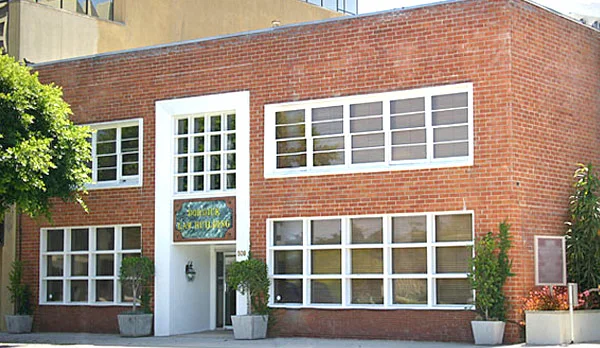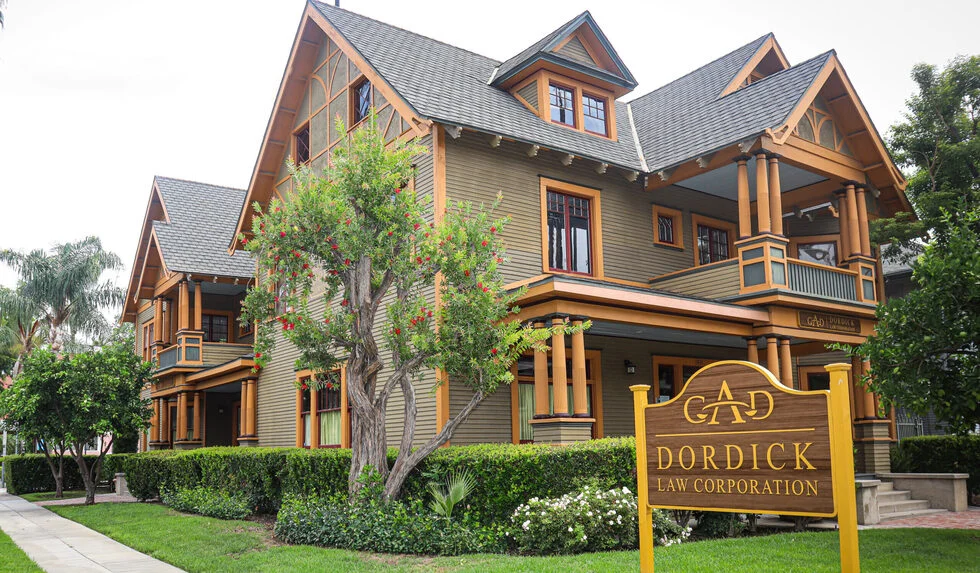No one should be made to suffer sexual abuse, and the people who commit this terrible act should be held accountable in every way possible. This can mean criminal prosecution, though even a conviction will not compensate the survivor for the terrible wrong that was done to them. Instead, a survivor can seek that form of accountability by pursuing a civil lawsuit against the perpetrator and their enablers.
At Dordick Law Corporation, we stand with abuse survivors by holding individuals and institutions accountable for the harm they’ve caused. Our Los Angeles sexual abuse lawyers know that taking legal action is a deeply personal decision. That’s why we offer a space of care, respect, and total confidentiality. We have a proven record of success in these cases, including a $10.1 million verdict for clients who were sexually abused at a youth correctional facility. Let us protect your rights, amplify your voice, and help you move forward with dignity. Call (310) 551-0949 now or complete our contact form for a free, confidential consultation.
Criminal vs. Civil Sexual Abuse Cases in Los Angeles
Sexual abuse can give rise to both criminal prosecution and civil litigation. However, the goals and procedures of each type of action are distinct.
Prosecutors file criminal charges against alleged abusers to punish them for the harm they’ve caused society. Penalties can include fines, jail time, registration as a sex offender, and more. Prosecutors must prove the abuser guilty “beyond a reasonable doubt,” which is the highest legal standard. These strict standards are why prosecutors sometimes hesitate to prosecute these cases, particularly if there’s little physical evidence.
In contrast, a survivor can file a lawsuit that aims to hold the abuser—as well as those who allowed the abuse to happen—financially accountable for the harm they’ve caused the survivor. Civil cases can’t result in prison time. Rather, they can provide compensation for victims’ medical care, therapy, lost wages, and emotional suffering. Additionally, the standard of proof is lower in civil cases. Instead of having to meet the “beyond a reasonable doubt” standard, survivors must prove their case by “a preponderance of the evidence.” In other words, they must show that it is more likely than not that the abuse took place. Therefore, a civil case can help survivors find a measure of justice even when prosecutors don’t file charges or a criminal case ends in acquittal.
Recognizing Sexual Abuse
Sexual abuse survivors sometimes hesitate to come forward because they don’t know if what happened to them qualifies as abuse. The advocacy group RAINN defines sexual abuse broadly as intentionally harming someone sexually or allowing them to come to such harm through neglect. The term can apply to anything from rape to coerced sexual acts.
Critically, abuse can happen to anyone. Children may be targeted by adults or older children in a position of authority over them. Adults might experience abuse during incarceration, while in nursing homes, or in other situations when they’re under someone else’s control or care. They may hesitate to report abuse due to shame or misplaced guilt. Likewise, children don’t always realize they suffered abuse until years later. They may also hesitate to report abuse out of fear, shame, or concern about retaliation.
California law recognizes that the effects of sexual abuse can surface years after the incident. Those who suffered abuse when they were 18 or older generally have 10 years from the date of the last incident to file a lawsuit. However, they may have additional time to file in some cases. The law also allows adult survivors to file a lawsuit within three years from when they discovered, or reasonably should have discovered, that the abuse caused psychological harm.
Furthermore, California has eliminated the statute of limitations for many lawsuits related to childhood sexual assault. Survivors of child sexual assault now have unlimited time to take legal action related to abuse that occurred on or after Jan. 1, 2024. Additionally, the Sexual Abuse and Cover-Up Accountability Act provides a three-year “lookback window”—until Dec. 31, 2026—for survivors of sexual assault that occurred on or after Jan. 1, 2009, to file civil claims that might have previously been barred.
Legal Deadlines for Older Victims of Child Sexual Abuse
Unfortunately, these recent changes in California laws are not retroactive beyond the lookback window. In other cases, survivors have until their 40th birthday or five years from discovering the abuse to file their claims.
How Sexual Abuse Lawsuits Work in California
Do you know or suspect you have grounds for a sexual abuse lawsuit? If so, you can start by meeting with an attorney to discuss what happened. If you choose to pursue legal action, your attorney will file a complaint with the relevant civil court and serve notice on the people responsible for the abuse you suffered. These parties can include not just the perpetrator themselves but other parties or organizations who encouraged the abuse or allowed it to take place.
This begins the discovery process, in which both sides gather evidence, speak with witnesses and experts, and exchange information. The goal of discovery is to narrow down the facts for trial.
At the same time, your attorney may also negotiate for an out-of-court settlement, should you find that preferable. That means you may receive compensation without having to testify in court. However, there are reasons you might prefer to take your case to trial, such as wishing to have your day in court or because you do not receive a fair settlement offer. A judge or jury will decide the outcome if you go to trial.
Importantly, you remain in control throughout the legal process. At Dordick Law Corporation, we help you make every decision with care, respect, and your well-being in mind. We know revisiting what happened to you is challenging, and we want to make the process as comfortable as possible.
Who Could Be Liable in a Civil Sexual Abuse Case?
The abuser might be just one of several parties who owe you compensation for what happened to you. Abuse often happens as a result of power structures that tolerate, permit, or even encourage such behavior. The people involved in these power structures may be just as much to blame for abuse as the person who actually committed it. As such, the potentially liable parties in your case could also include:
- Employers – If the abuse occurred while the abuser was on the job, the employer may be liable for failing to perform proper background checks or ignoring complaints against the abuser.
- Schools and School Districts – These institutions can be liable for abuse if they did not properly protect students. For example, they may have failed to supervise staff adequately, respond to reports of abuse, or implement sufficient safety measures.
- Religious Institutions – A church, synagogue, or other religious organization may be liable if it covered up abuse. For example, the organization may have failed to report a clergy member or staffer to authorities or reassigned known offenders to new roles, as was the case with many Catholic dioceses.
- Youth Organizations (such as camps, sports leagues, or scouting programs) – These groups may be liable if they didn’t properly screen volunteers. Ignoring warning signs of misconduct or failing to act after reported abuse is also common among these groups.
- Nursing Homes and Assisted Living Facilities – A nursing home or similar facility may be liable if it didn’t supervise staff properly. They might also be liable if they ignored complaints from residents or their families.
- Foster Care Agencies and Social Services – These entities can be liable if they placed children in known unsafe homes or didn’t investigate credible reports of abuse.
Compensation in Civil Sexual Abuse Cases
Sexual abuse often causes significant physical, emotional, and financial harm. You can demand compensation for many losses you may have experienced, including:
- Medical expenses
- Therapy and counseling costs
- Lost income
- Loss of future earning potential
- Pain and suffering
- Loss of enjoyment of life
You could also be entitled to punitive damages. These damages are meant to penalize the liable parties rather than compensate you for specific losses.
What evidence is needed for a sexual abuse case?
The evidence needed for a sexual abuse case typically includes medical records, witness testimonies, physical evidence, and documentation of emotional/psychological harm. These can help establish the occurrence and impact of the abuse.
How does the legal process work for survivors?
The legal process for survivors involves filing a civil lawsuit to seek compensation for the harm caused by sexual abuse. This can include recovering damages and holding the responsible parties accountable.
How long do I have to file a claim?
The time you have to file a claim depends on the specific details of your case, but generally, there are legal deadlines known as statutes of limitations that vary by state and the type of abuse.
Contact Our Los Angeles Sexual Abuse Attorneys Now
Dordick Law Corporation knows that taking legal action against an abuser is never easy. We’re here to help you do so with empathy, understanding, and a firm commitment to justice. Call (310) 551-0949 now or complete our contact form for a free, confidential case review.


